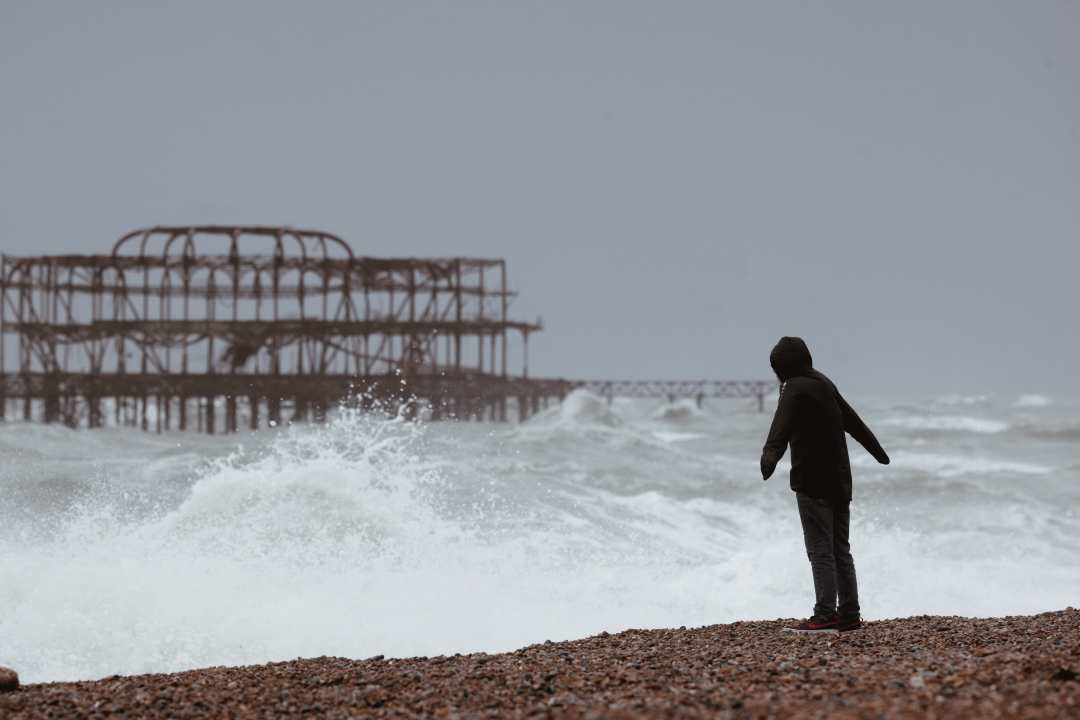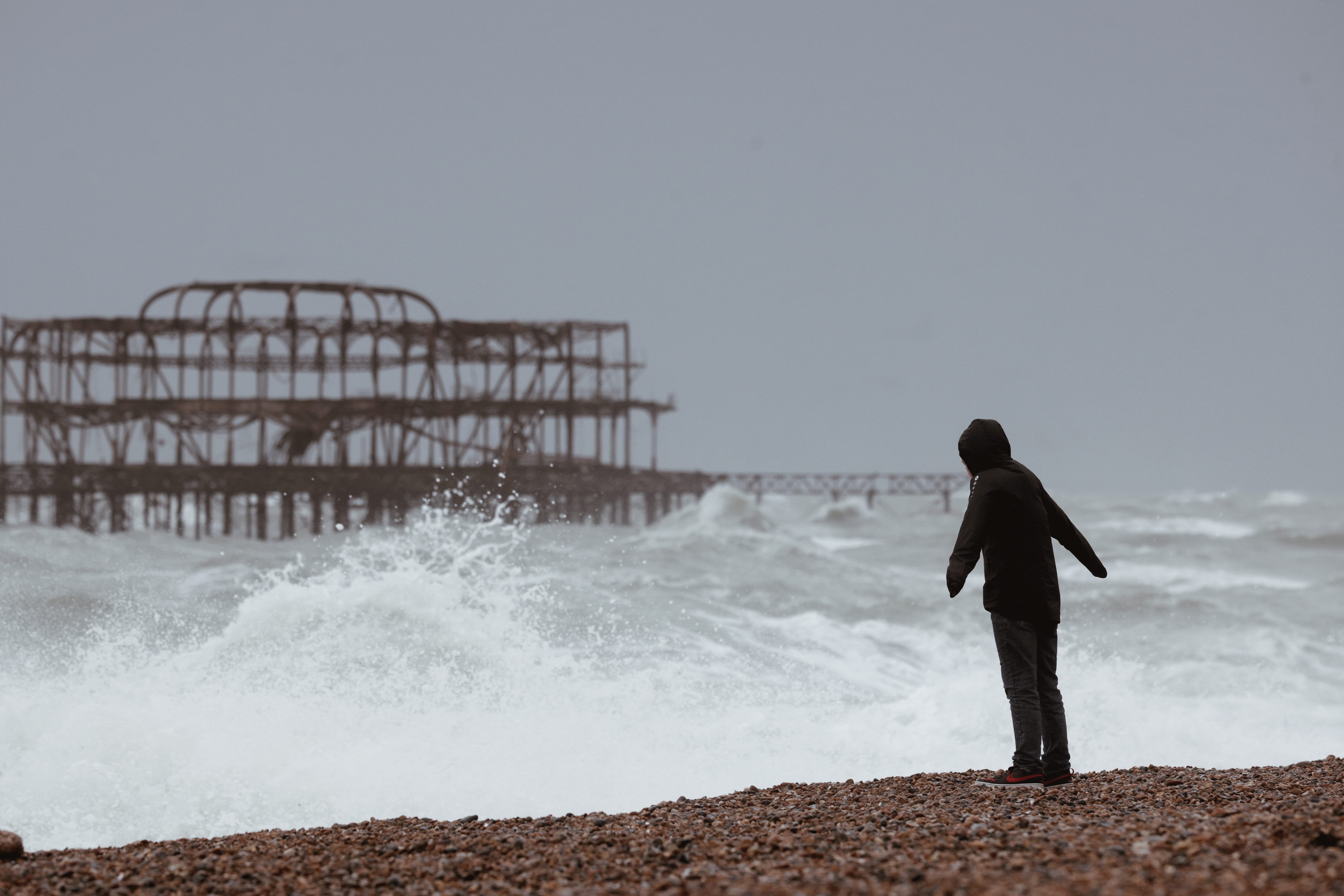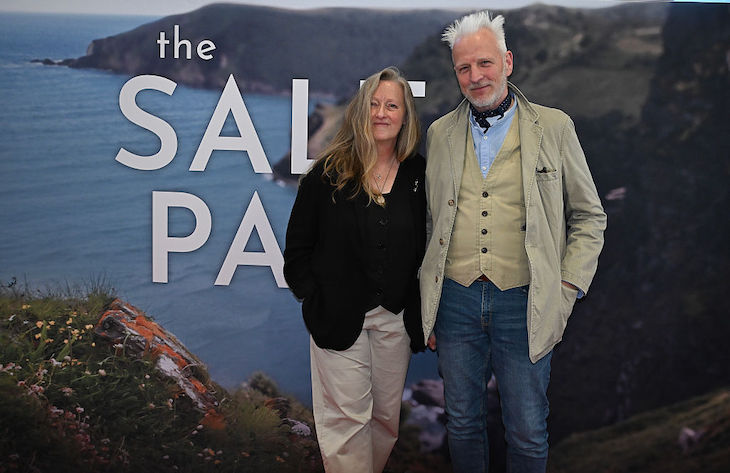The late Roger Scruton (whose wrongful sacking as a housing adviser by a Tory minister in 2019 was a sign that things were badly wrong) defined the fundamental issue: ‘There can be no democracy without a demos, a “we” united by a shared sense of belonging.’ How has the demos changed over 14 years of Conservative government? The ‘we’ is weaker than when David Cameron and Nick Clegg were promoting a Big Society. We are in a pessimistic mood in which saying that ‘nothing works’ has become a catchphrase. Politicians are despised. The party that has governed for so long cannot avoid responsibility.
The government seemed scared to defend their only truly historic achievement
Nevertheless, our basic problems are common to the western world. America and France are in a much worse state, with wild talk in both of civil war. We, in contrast, shall see the traditional peaceful transition of power today. We are probably in less of a cultural turmoil than in the 1960s, less economically prostrate than in the 1970s, and less bitterly divided than in the 1980s. Our present malaise owes much to global forces, most obviously the weakening of democratic politics, the unpredictable results of technology, climate changes and the impact of ‘Net Zero’ policies, and the actions of Russia, China, the USA and the EU.
Yet we have experienced cultural changes that Conservative supporters believe that their government has ignored, failed to understand, been afraid to mitigate, or even promoted.
First, the Covid pandemic and the response to it have proved a long-term disaster, and not only through economic disruption and the augmented national debt. In one way it showed us at our best: the ‘Dunkirk spirit’ revived. People wanted to help their neighbours and save the NHS. But they also wanted more lockdowns. Pressed by the media and the opposition, the Johnson government caved in. Whitehall plunged into half-truths and authoritarianism. Lord Sumption warned that they were hugely exceeding their proper powers, and I pooh-poohed his worries. But was he not prescient?
We quickly got vaccines, but we have since fallen further into the arms of an insatiable yet incompetent nanny state. Many children have stopped going to school. People work from home (we are, it seems, the ‘world leaders’), or work less, or don’t work at all. Illnesses, real or imagined, have increased. Cambridge University estimates that 50 per cent of its students will be ‘disabled’ by 2030. We lacked the courage and self-reliance of the Swedes, and we are paying the price.
Second, we have experienced big population change, both in numbers and composition. We now have a percentage of foreign-born residents larger than France, and as large as the United States. Despite the fuss about the Rwanda scheme and ‘stopping the boats’, the Conservatives chose to import cheap labour for occupations for which we refuse to pay proper wages or provide adequate training for UK residents, principally health and care work. Immigration raises GDP (which people notice) but not GDP per head (which people overlook). It is the antithesis of ‘levelling up’ and of a ‘high wage economy’, and many businesses have become addicted to it.
Evidently this population change alters culture and society, especially in some cities. The Palestinian agitation has been a shock warning of a deep divide, and it provides a bandwagon for miscellaneous extremists. Fortunately, we do not have anything approaching the racial or religious conflicts of France or America. We do not have a xenophobic or racist culture or politics. The ‘nasty party’ is led by men and women of immigrant origin, some of them favourites of the Tory shires. The consensus is to control immigration, not stop it dead, and no one suggests the discriminatory policies advocated by Madame Le Pen. But will numbers be controlled? And if not?
Third, the so-called ‘culture wars’. We are buffeted by America’s obsessions. Waves of profound yet unpopular cultural change have flooded the Anglosphere and now trickle into European countries. Social media furnish a frightening weapon for enforcing conformity. The Conservative government looked the other way. It could and should have acted to restrain many institutions in receipt of public funds – schools, universities, museums, charities, the civil service, even churches – which became purveyors of so-called ‘anti-racism’, anti-intellectual ‘decolonisation’, even radical transgenderism. It has not in fourteen years replaced or even much diluted the ‘woke’ elite that controls such institutions, and whose control will now be unchallenged.
Very few ministers have shown awareness of the stakes. An exception is Kemi Badenoch, who as equalities minister set up the courageous Commission on Race and Ethnic Disparities (which debunked the accusations that Britain was a racist society). She also acted to limit transgender excesses in schools and she backed the watershed Cass Report bringing some sanity to the treatment of gender dysphoria. Legislation has also been passed to protect free speech and academic freedom – a good deed in a naughty world, resisted by those who run universities. Will it long survive? Will those who want Britain to be ashamed and divided soon have free rein?
Finally, the almost unspoken word in this election: Brexit. The 2016 vote sharply and visibly divided the country in overlapping ways: prosperous against less prosperous; London against the provinces; graduates against non-graduates; women against men; young against old; ‘anywhere’ against ‘somewhere’. The bitterness of this division was not rational. Few people had cared deeply about the EU, which brought us few benefits. Had we not already been members, suggested the economist Sir Paul Collier, we would certainly not have voted to join. Emotion was stirred up on both sides, especially by the Cameron government’s ‘Project Fear’.
After the vote it was the duty of the Conservatives to heal the wounds and carry out the referendum mandate. But the party was itself split: most of its MPs were Remainers. Their efforts in Whitehall and Westminster to head-off Brexit prolonged and poisoned the division. Theresa May made things worse by going for ‘Brexit in name only’. Backbenchers, including former ministers, joined the opposition to use barely constitutional means to hamstring Boris Johnson’s negotiations. The prolonged wrangling made a political dispute increasingly into a cultural clash, indeed eventually part of the ‘culture wars’. Brexit became a facile scapegoat for all our ills. For some, oblivious of the real EU and its travails, anti-Brexitism was another modish rejection of Scruton’s ‘we’: in this case being ‘European’ rather than boringly British.
Brexit got done, more or less. We are largely free of the EU’s political and financial entanglements. Trade agreements and Aukus have followed. Far from being marginalised, Britain led support to Ukraine. But the government seemed scared to defend their only truly historic achievement and have long refrained from rebutting misleading claims and stating basic economic facts about Brexit (the exception again is the indomitable Badenoch, as trade minister). Tory Remainers in the Home Counties have not been shown that Brexit is after all working, so many voted Lib Dem, however vacuous that party is. Many Leavers in the Red Wall seats voted Reform. Saying that Labour will be even worse was no longer enough. Voters will forgive failures, but not what they see as betrayal. The Conservative party condemned itself to defeat, and has left behind a confused, cynical and divided country.









Comments